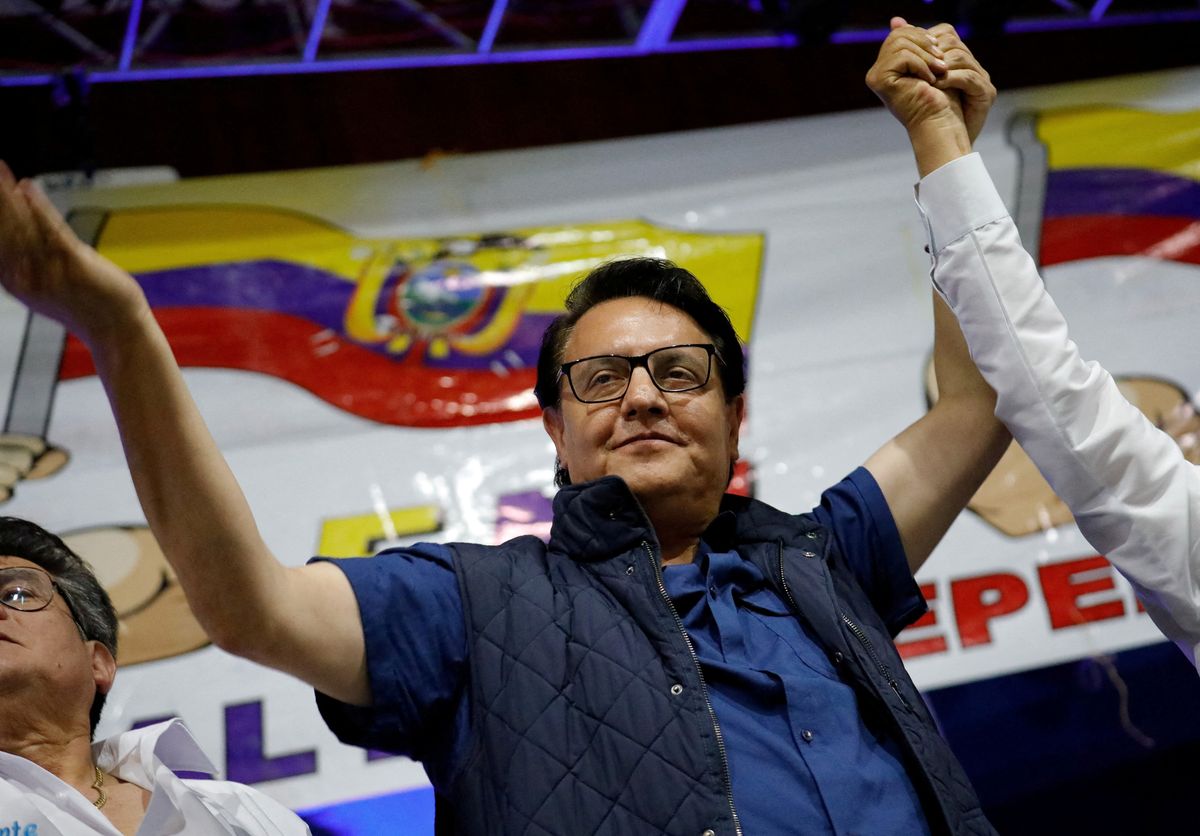Ecuador presidential candidate Fernando Villavicencio is assassinated
After a campaign event near a high school in Ecuador’s capital city of Quito, Fernando Villavicencio was assassinated.

A few minutes every morning is all you need.
Stay up to date on the world's Headlines and Human Stories. It's fun, it's factual, it's fluff-free.
The backstory: There have been a few assassination attempts (and successes) on world leaders and politicians over the past few years that have made global waves. For example, last year, former Japanese Prime Minister Shinzo Abe was killed with a homemade gun at close range by a man who was angry about Abe’s alleged association to the controversial Unification Church. In the past five years, there have been assassination attempts on Argentinian Vice President Cristina Fernandez de Kirchner, former Brazilian President Bolsonaro, Haitian President Moise (successful) and other leaders. In fact, Brazilian President Luiz Inácio Lula da Silva wore a bulletproof vest during rallies for his last presidential campaign.
While assassination attempts in Latin America aren’t necessarily higher than in other regions, the Americas (the US, Latin America and the Caribbean) have a high homicide rate compared to much of the rest of the world. Gun violence is a known problem in the US, and some Latin American and Caribbean countries have a history of high levels of violence – with El Salvador, Jamaica, Honduras, Belize, Venezuela, the Bahamas, Trinidad and Tobago and Mexico in the top 15 countries with the highest murder rate as of this year.
More recently: In Ecuador, citizens are dealing with an organized crime crisis that’s led to thousands of deaths and the country’s government has gotten tangled up in accusations of having links to these crime groups. As citizens gear up to vote for a new president on August 20, organized crime and government corruption has been a simmering topic. One presidential candidate, former journalist Fernando Villavicencio, has been pushing back against what is believed to be drug-related violence that has become an epidemic. He was kind of considered a single-issue candidate, being really vocal against corruption.
The development: After a campaign event near a high school in Ecuador’s capital city of Quito, Villavicencio was assassinated. He was under national police protection, but he and nine other people were shot. Six suspects – all Colombian nationals – were arrested Thursday, and another suspect died following a shootout with security officials. This is the first time a presidential candidate in Ecuador has been assassinated, but it comes less than a month after the mayor of Manta, a port city, was shot and killed during a public appearance.
The current Ecuadorian President Guillermo Lasso has called for a 60-day national state of emergency and three days of national mourning. Villavicencio’s murder is being seen as a symptom of the issues he wanted to solve, with Lasso suggesting that it could’ve been linked to a culture of organized crime. The election will still move forward on August 20. The US government is also reportedly sending Federal Bureau of Investigation (FBI) agents to Ecuador to assist in the investigation.
Key comments:
“Electorally speaking, this year is the most violent in our history,” said Arianna Tanca, an Ecuadorean political scientist, to the New York Times. “I think that what is going to change is the way we conceive of politics. I think that from now on it becomes a high-risk profession.”
"In the name of his memory and what he stood for, I assure you that this crime will not go unpunished,” said Ecuadorian President Guillermo Lasso. “Organized crime have gone very far, but all the weight of the law will fall on them."
"We urge all candidates to strengthen their security measures and call upon the authorities to provide the necessary support to guarantee the integrity of the participants in the electoral process,” said the Organization of American States. “The security of candidates is fundamental to maintaining confidence in the democratic system."
"It's heartbreaking for him and for his family, for his supporters. And I'm sure that all of Ecuador is grieving right now,” said US national security spokesperson John Kirby. "We obviously hope that there'll be a full, complete and transparent investigation into this and that the perpetrators are held properly accountable."




Comments ()